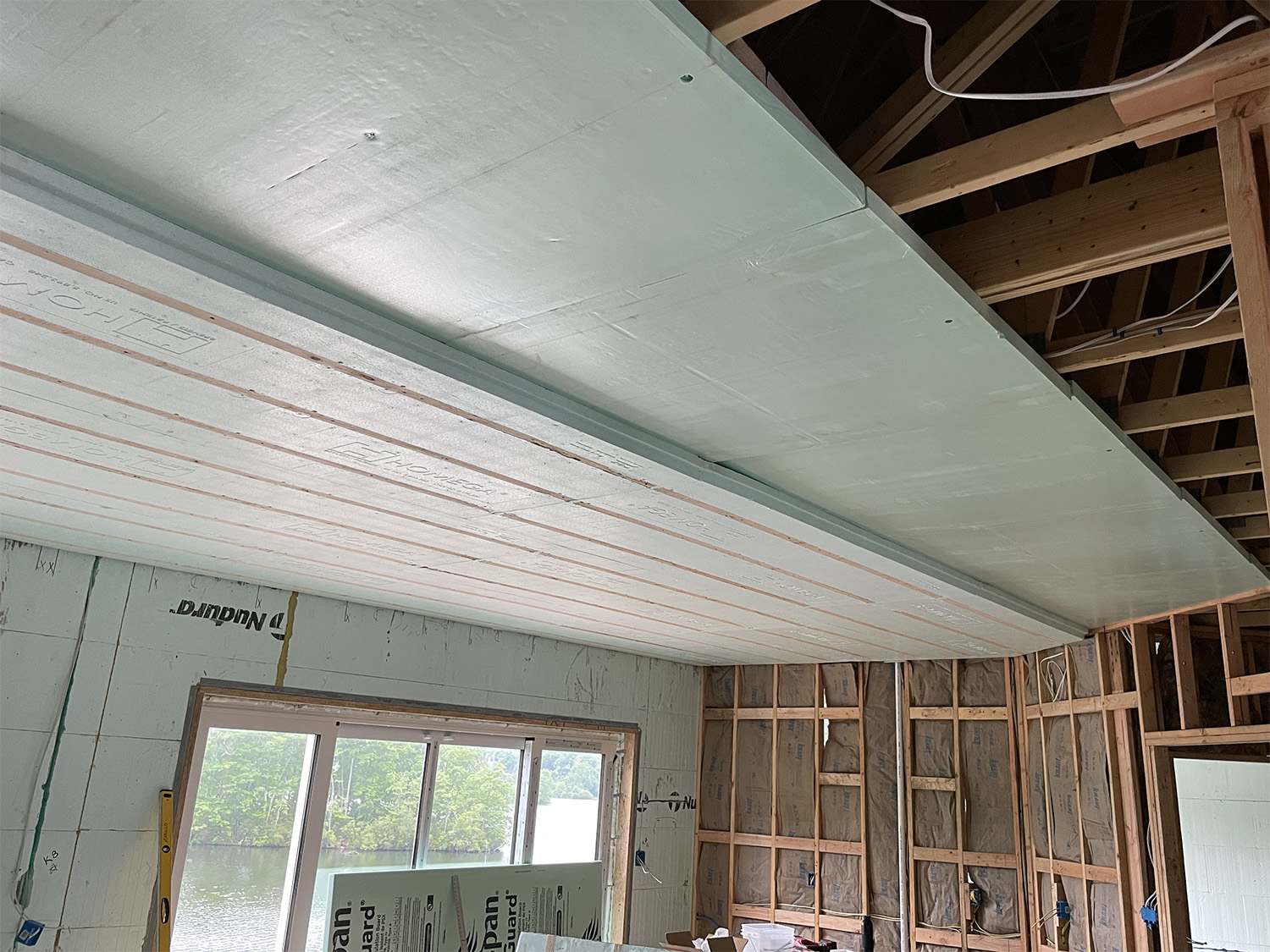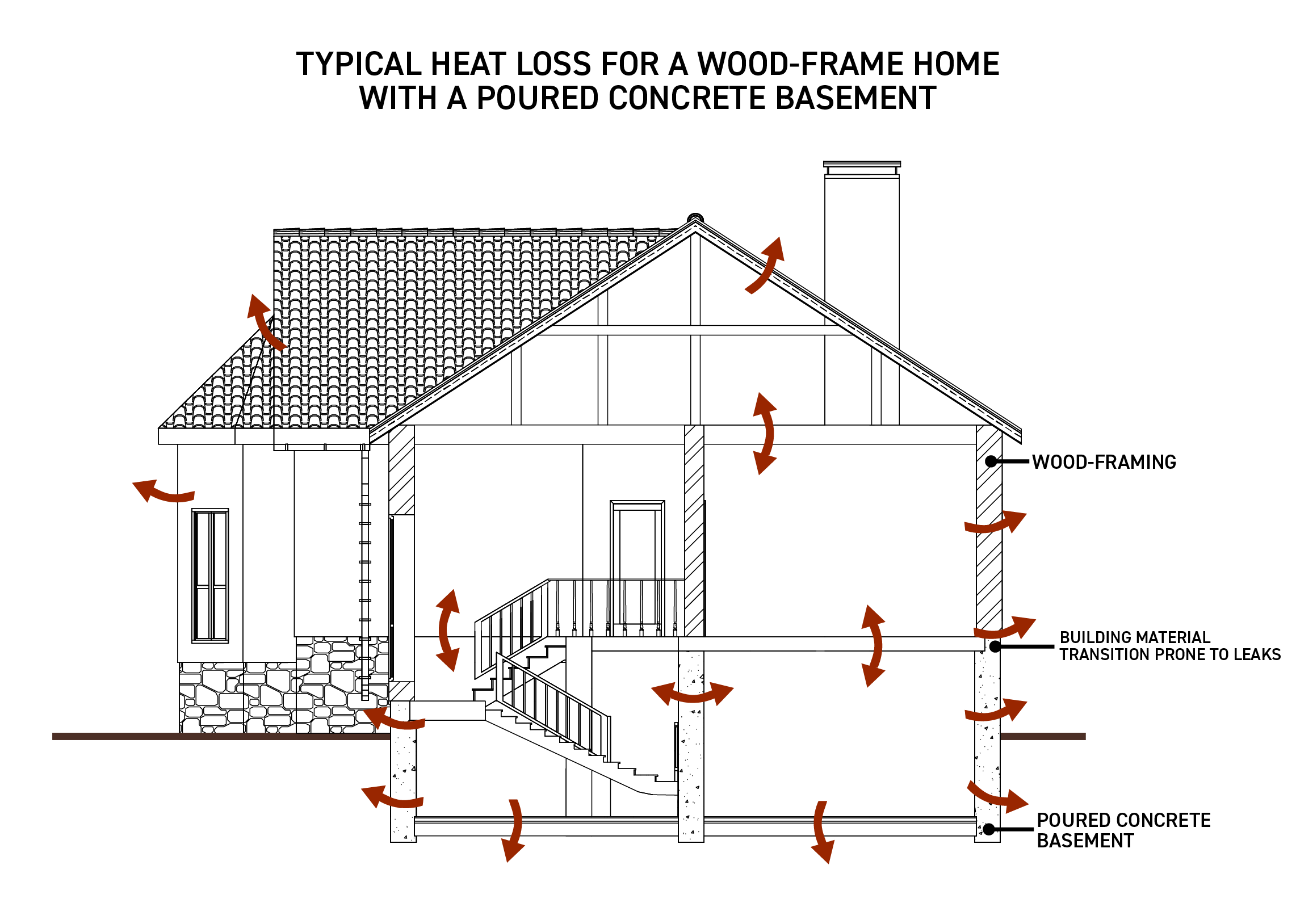
- Products
- Why Nudura
- Nudura Project Applications
- Training Academy
- Resources
- Company
Build a Better Basement with Nudura ICFs
As the saying goes, a home is only as solid as its foundation. Concrete is well known for its dependability as a foundation building material, but Insulated Concrete Forms (ICFs) deliver a superior concrete wall with greater protection from the elements. So when it comes to choosing the material for your clients’ basements, here are four reasons why ICFs from Nudura are the way to go.
They're durable
When your customers hire you to build the home of their dreams, they want it to last. This is particularly important if you’re building in an area where wildfires, tornadoes and/or hurricanes are a risk.
Nudura ICF foundations and walls begin with lightweight, stackable forms. Each form consists of two layers of 2 5/8”-thick expanded polystyrene (EPS) insulation. Once stacked, the forms are filled with concrete that is reinforced with steel rebar.
It’s also worth noting that, “ICFs are typically known for basements, but you can do so much more than that,” says Alberta-based builder Kody Horvey. “Any type of building can be built using ICFs.”
The finished walls can endure wind speeds up to 250 miles per hour (400 kilometers per hour), equivalent to an F4 tornado, and can stand up to flying debris better than wood framing. There are many examples of ICF homes left unscathed after an earthquake, hurricane, tornado or wildfire demolished neighboring buildings. In fact, owners in disaster-prone areas have used ICFs to create safe rooms inside their homes.

They're pest- and water-resistant
Traditional basements constructed with organic materials like wood draw in moisture which attract pests and mold and contribute to the musty smell commonly associated with older cellars.
ICF walls, on the other hand, have a number of features that make them resistant to water and insects. The continuous vapor barrier blocks condensation, preventing the growth of mold, mildew and rot. The concrete core also minimizes temperature fluctuations to keep the basement drier, warmer and healthier for occupants. The inorganic EPS foam and concrete of the ICF blocks means termites won’t eat it so you don’t have to worry about structural damage down the road. As a result, an ICF wall is far less likely to fail than a wood-framed one, avoiding costly replacements and repairs.
They're energy efficient
With rising costs for pretty much everything, homeowners are always on the lookout for ways to lower their energy bills. A standard six-inch-thick Nudura ICF wall, which is reinforced with continuous insulation inside and out, creates a tightly sealed building envelope with an overall R-value of about R-24. This eliminates drafts and means a building can maintain steady, even temperatures for longer, providing added comfort for your clients.
So, no more damp, cold, musty basements. With traditional poured concrete foundations, these uninsulated walls extend above-grade before transitioning to the wood-framed walls. This exposed area is therefore more susceptible to air and water leaks. With ICFs, however, the below-grade and above-grade walls are monolithic with continuous insulation from the basement all the way to the roof.

The technology also minimizes the thermal bridging common with wood-framing, which is the transfer of air through the walls that reduces a building’s energy efficiency and leads to drafts or cold spots in the interior.
ICFs can also help meet (and exceed) the International Residential Code and other requirements for local and national energy efficiency programs, earning homeowners valuable rebates and other incentives.
They’re quick and easy to install
Nudura ICFs combine six wall components in one step: the form, wall structure, insulation, air barrier, vapor barrier, and an interior and exterior surface that is ready for finishing materials.
Taking care of all of these elements at once makes for a simpler installation compared to wood framing and poured concrete foundations. The stay-in-place insulated forms eliminate the costly and laborious work of removing and hauling formwork on the jobsite, which saves time during installation, reduces the number and skill level of crew members you need – and therefore labor costs – and minimizes opportunities for errors.
ICFs can also be installed year-round. It’s also easy to route wiring and plumbing through the interior insulation layer. Overall, ICF construction can be completed 25% to 50% faster than wood framing. All of which means your clients can move into their home sooner and on budget.
CONTACT US
We’re committed to supporting homeowners and design professionals who are interested in or use our products. We’re always happy to help and provide more information.




